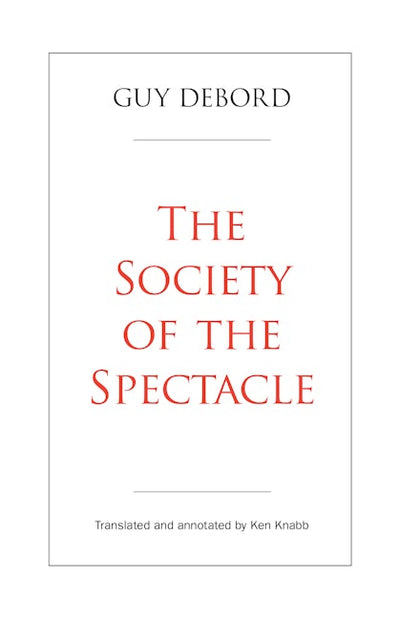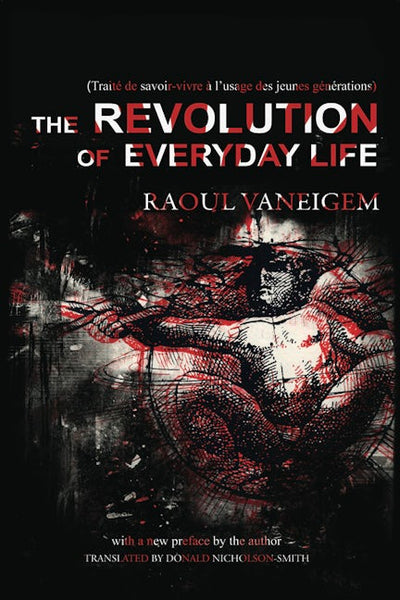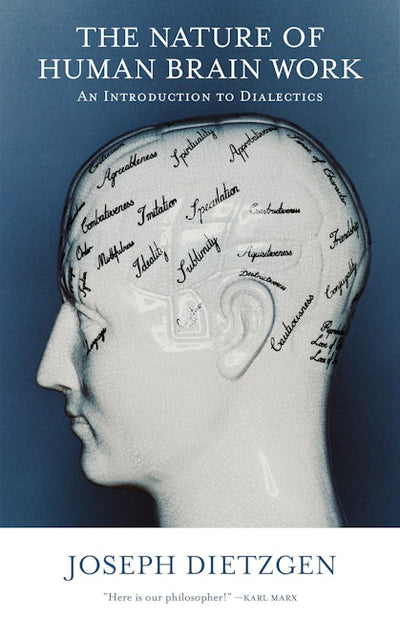-
Antiques & Collectibles
-
Architecture
-
Bibles
-
Biography & Autobiography
-
Body, Mind & Spirit
-
Comics & Graphic Novels
-
Crafts & Hobbies
-
Design
-
All collections
-
Foreign Language Study
-
Games & Activities
-
Gardening
-
House & Home
-
Humor
-
Language Arts & Disciplines
-
Literary Collections
-
Mathematics
-
Miscellaneous
-
Nature
-
Pets
-
Philosophy
-
Photography
-
Poetry
-
Reference
-
Self-Help
-
Study Aids
-
Transportation
-
True Crime
-
Antiques & Collectibles
-
Architecture
-
Bibles
-
Biography & Autobiography
-
Body, Mind & Spirit
-
Comics & Graphic Novels
-
Crafts & Hobbies
-
Design
-
All collections
-
Foreign Language Study
-
Games & Activities
-
Gardening
-
House & Home
-
Humor
-
Language Arts & Disciplines
-
Literary Collections
-
Mathematics
-
Miscellaneous
-
Nature
-
Pets
-
Philosophy
-
Photography
-
Poetry
-
Reference
-
Self-Help
-
Study Aids
-
Transportation
-
True Crime
Situationist International Anthology
Regular price $29.95 Save $-29.95The Situationist International Anthology is the most comprehensive and accurately translated collection of situationist writings in English.
In 1957 a few European avant-garde groups came together to form the Situationist International. Picking up where the dadaists and surrealists had left off, the situationists challenged people’s passive conditioning with carefully calculated scandals and the playful tactic of détournement (“rerouting, hijacking”). Seeking a more extreme social revolution than was dreamed of by most leftists, they developed an incisive critique of the global spectacle-commodity system and of its “Communist” pseudo-opposition, and their new methods of agitation helped trigger the May 1968 revolt in France. Since then situationist theories and tactics have continued to inspire radical currents all over the world.
This volume presents a rich variety of articles, leaflets, graffiti, and internal documents, ranging from experiments in “psychogeography” to lucid analyses of the Watts riot, the Vietnam War, the Prague Spring, the Chinese Cultural Revolution, and other crises and upheavals of the sixties.For this new edition all the translations have been fine-tuned and the bibliography has been updated to include comments on dozens of newer books by and about the situationists.

The Society of the Spectacle
Regular price $19.95 Save $-19.95The Society of the Spectacle is a carefully considered effort to clarify the most fundamental tendencies and contradictions of the society in which we find ourselves—in order to facilitate its overthrow.
Guy Debord was the founder of the Situationist International, the notorious avant-garde group that helped trigger the May 1968 revolt in France, which brought the entire country to a standstill for several weeks. His book The Society of the Spectacle, originally published in Paris in 1967, has been translated into more than twenty other languages and is arguably the most important radical work of the twentieth century. Ken Knabb’s meticulous new translation is the first edition in any language to include extensive annotations, clarifying the historical allusions and revealing the sources of Debord’s quotations and “détournements.”
Contrary to popular misconceptions, Debord’s book is neither an ivory tower “philosophical” discourse nor a mere expression of “protest.” This makes the book more of a challenge, but it is also why it remains so pertinent more than half a century after its original publication, while countless other social theories and intellectual fads have come and gone.
It has, in fact, become even more pertinent than ever, because the spectacle has become more all-pervading and glaringly obvious than ever. As Debord noted in his follow-up work, Comments on the Society of the Spectacle (1988), “spectacular domination has succeeded in raising an entire generation molded to its laws.”
Debord’s book remains the best guidebook to understanding that mold and breaking it.

Romantic Rationalist
Regular price $17.95 Save $-17.95William Godwin (1756–1836) was one of the first exponents of utilitarianism and the first modern proponent of anarchism. He was not only a radical philosopher but a pioneer in libertarian education, a founder of communist economics, and an acute and powerful novelist whose literary family included his partner, pioneering feminist writer Mary Wollstonecraft, and his daughter Mary Godwin (later Mary Shelley), who would go on to write Frankenstein and marry the poet Percy Bysshe Shelley.
His long life straddled two centuries. Not only did he live at the center of radical and intellectual London during the French Revolution, he also commented on some of the most significant changes in modern history. Shaped by the Enlightenment, he became a key figure in English Romanticism.
This work offers for the first time a handy collection of Godwin’s key writings in a clear and concise form, together with an assessment of his influence, a biographical sketch, and an analysis of his contribution to anarchist theory and practice. The selections are taken from all of Godwin’s writings including his groundbreaking work during the French Revolution, An Enquiry Concerning Political Justice, and arranged by editor Peter Marshall to give a coherent account of his thought for the general reader.
Godwin’s work will be of interest to all those who believe that rationality, truth, happiness, individuality, equality, and freedom are central concerns of human enquiry and endeavor.

Revolution of Everyday Life
Regular price $20.00 Save $-20.00Originally published just months before the May 1968 upheavals in France, Raoul Vaneigem’s The Revolution of Everyday Life offered a lyrical and aphoristic critique of the “society of the spectacle” from the point of view of individual experience. Whereas Debord’s masterful analysis of the new historical conditions that triggered the uprisings of the 1960s armed the revolutionaries of the time with theory, Vaneigem’s book described their feelings of desperation directly, and armed them with “formulations capable of firing point-blank on our enemies.”
“I realise,” writes Vaneigem in his introduction, “that I have given subjective will an easy time in this book, but let no one reproach me for this without first considering the extent to which the objective conditions of the contemporary world advance the cause of subjectivity day after day.”
Vaneigem names and defines the alienating features of everyday life in consumer society: survival rather than life, the call to sacrifice, the cultivation of false needs, the dictatorship of the commodity, subjection to social roles, and above all the replacement of God by the Economy. And in the second part of his book, “Reversal of Perspective,” he explores the countervailing impulses that, in true dialectical fashion, persist within the deepest alienation: creativity, spontaneity, poetry, and the path from isolation to communication and participation.
For “To desire a different life is already that life in the making.” And “fulfillment is expressed in the singular but conjugated in the plural.”
The present English translation was first published by Rebel Press of London in 1983. This new edition of The Revolution of Everyday Life has been reviewed and corrected by the translator and contains a new preface addressed to English-language readers by Raoul Vaneigem. The book is the first of several translations of works by Raoul Vaneigem that PM Press plans to publish in uniform volumes. Vaneigem’s classic work is to be followed by The Knight, the Lady, the Devil, and Death (2003) and The Inhumanity of Religion (2000).

Nature of Human Brain Work
Regular price $20.00 Save $-20.00Called by Marx “The Philosopher of Socialism,” Joseph Dietzgen was a pioneer of dialectical materialism and a fundamental influence on anarchist and socialist thought who we would do well not to forget.
Dietzgen examines what we do when we think. He discovered that thinking is a process involving two opposing processes: generalization, and specialization. All thought is therefore a dialectical process. Our knowledge is inherently limited however, which makes truth relative and the seeking of truth on-going. The only absolute is existence itself, or the universe, everything else is limited or relative. Although a philosophical materialist, he extended these concepts to include all that was real, existing or had an impact upon the world. Thought and matter were no longer radically separated as in older forms of materialism. The Nature of Human Brain Work is vital for theorists today in that it lays the basis for a non-dogmatic, flexible, non-sectarian, yet principled socialist politics.

Letter to My Children and the Children of the World to Come
Regular price $15.95 Save $-15.95Readers of Vaneigem’s now-classic work The Revolution of Everyday Life, which as one of the main contributions of the Situationist International was a herald of the May 1968 uprisings in France, will find much to challenge them in these pages written in the highest idiom of subversive utopianism.
Written some thirty-five years after the May “events,” this short book poses the question of what kind of world we are going to leave to our children. “How could I address my daughters, my sons, my grandchildren and great-grandchildren,” wonders Vaneigem, “without including all the others who, once precipitated into the sordid universe of money and power, are in danger, even tomorrow, of being deprived of the promise of a life that is undeniably offered at birth as a gift with nothing expected in return?”
A Letter to My Children provides a clear-eyed survey of the critical predicament into which the capitalist system has now plunged the world, but at the same time, in true dialectical fashion, and “far from the media whose job it is to ignore them,” Vaneigem discerns all the signs of “a new burgeoning of life forces among the younger generations, a new drive to reinstate true human values, to proceed with the clandestine construction of a living society beneath the barbarity of the present and the ruins of the Old World.”








